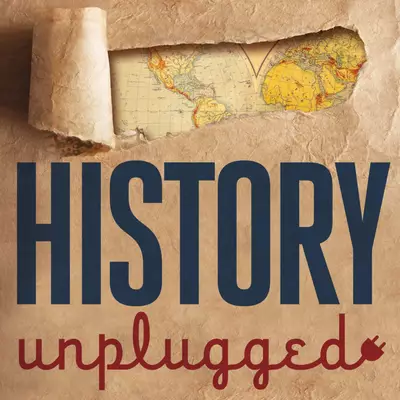Listen on Your Favorite App
George Washington Became Great Because He Spent Years in the Political Wilderness as a Washed-Up Has-Been
April 15, 2021
00:00
44:49
Listen on Your Favorite App
By age twenty-two, George Washington was acclaimed as a hero. As a commander of the Virginia Regiment, he gave orders to men decades older than himself. He was good at most things he tried and his name was known throughout British North America and England. Yet his military career came to ashes when he was twenty-seven. He tumbled down in power and was reduced to arguing on a law in the Virginia House of Burgesses of the banning of pigs running loose. His life is a story of careful reinvention from early missteps, culminating in his unanimous election as the nation's first president. But how did Washington emerge from a military leader to the highest office in the country?
Today’s guest, David Stewart – author of George Washington: The Political Rise of America’s Founding Father, says that Washington has often been portrayed as less eloquent and politically savvy than peers, but his political skills were second to none. From Virginia's House of Burgesses, where Washington learned the craft and timing of a practicing politician, to his management of local government as a justice of the Fairfax County Court, to his eventual role in the Second Continental Congress and his grueling generalship in the American Revolution, Washington perfected the art of governing and service, earned trust, and built bridges. The lessons in leadership he absorbed along the way proved invaluable during the early years of the republic as he fought to unify the new nation.
We look at five treacherous political minefields that Washington navigated in his career, including:
• Bringing his army through a winter of despair at Valley Forge in 1778, while thwarting a combination to supersede him as commander in chief, then winning a crucial battle at the Monmouth Court House
• Persuading mutinous, unpaid soldiers and officers to lay down their arms and embrace peace in 1783, then playing the crucial role in resolving the nation’s political chaos with a new constitution in 1787
• Leading the new federal government as it was created from next to nothing, then guiding the bargain for a financial program that restored the nation’s credit and ensured its solvency
• Keeping the nation out of the European war that followed the French Revolution, cooling passionate American adherents of both France and Britain
• Struggling, in his final years, with human slavery, hoping to point his countrymen toward repentance and even redemption.
Today’s guest, David Stewart – author of George Washington: The Political Rise of America’s Founding Father, says that Washington has often been portrayed as less eloquent and politically savvy than peers, but his political skills were second to none. From Virginia's House of Burgesses, where Washington learned the craft and timing of a practicing politician, to his management of local government as a justice of the Fairfax County Court, to his eventual role in the Second Continental Congress and his grueling generalship in the American Revolution, Washington perfected the art of governing and service, earned trust, and built bridges. The lessons in leadership he absorbed along the way proved invaluable during the early years of the republic as he fought to unify the new nation.
We look at five treacherous political minefields that Washington navigated in his career, including:
• Bringing his army through a winter of despair at Valley Forge in 1778, while thwarting a combination to supersede him as commander in chief, then winning a crucial battle at the Monmouth Court House
• Persuading mutinous, unpaid soldiers and officers to lay down their arms and embrace peace in 1783, then playing the crucial role in resolving the nation’s political chaos with a new constitution in 1787
• Leading the new federal government as it was created from next to nothing, then guiding the bargain for a financial program that restored the nation’s credit and ensured its solvency
• Keeping the nation out of the European war that followed the French Revolution, cooling passionate American adherents of both France and Britain
• Struggling, in his final years, with human slavery, hoping to point his countrymen toward repentance and even redemption.
See omnystudio.com/listener for privacy information.
More Episodes
See all episodes
Meet Your Host

Scott Rank is the host of the History Unplugged Podcast and a PhD in history who specialized in the Ottoman Empire and modern Turkey. Before going down the academic route he worked as a journalist in Istanbul. He has written 12 history books on topics ranging from lost Bronze Age civilizations to the Age of Discovery. Some of his books include The Age of Illumination: Science, Technology, and Reason in the Middle Ages and History’s 9 Most Insane Rulers.. Learn more about him by going to scottrankphd.com.
